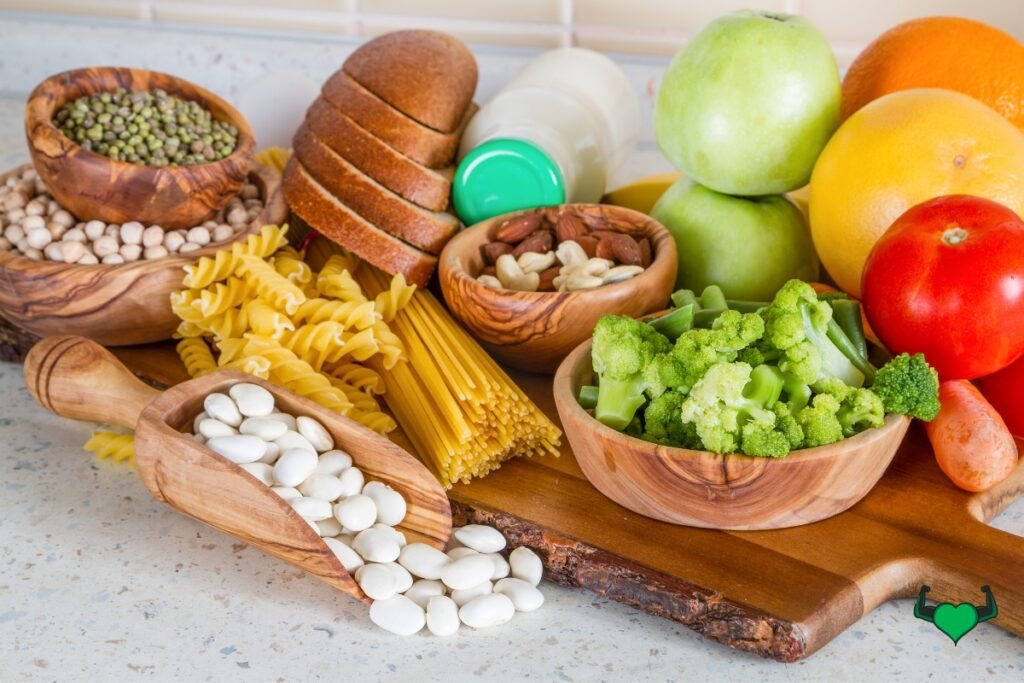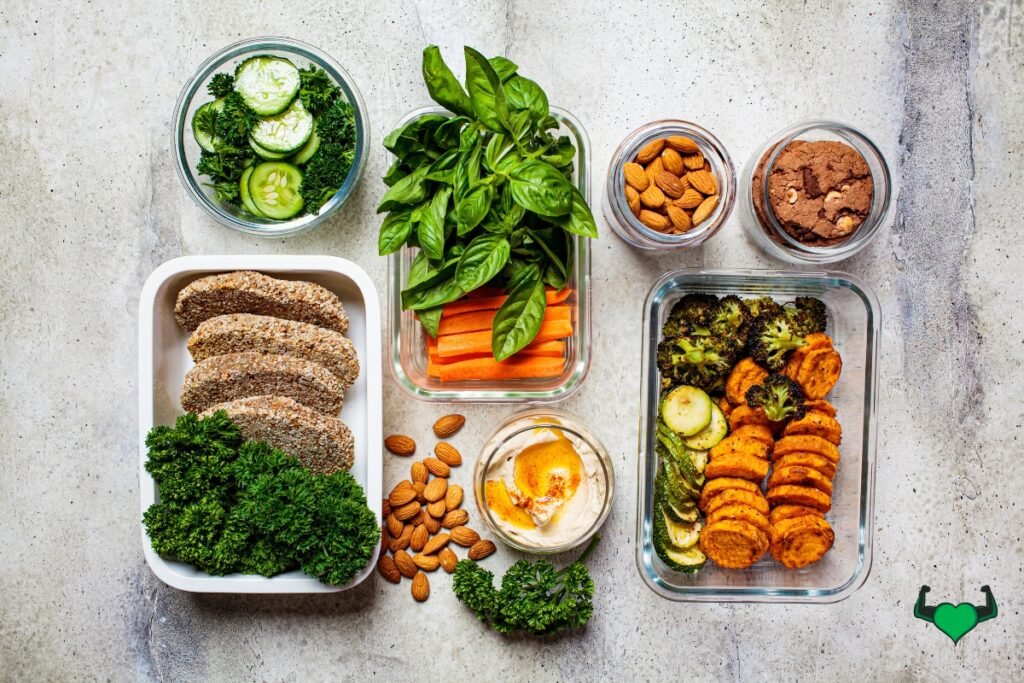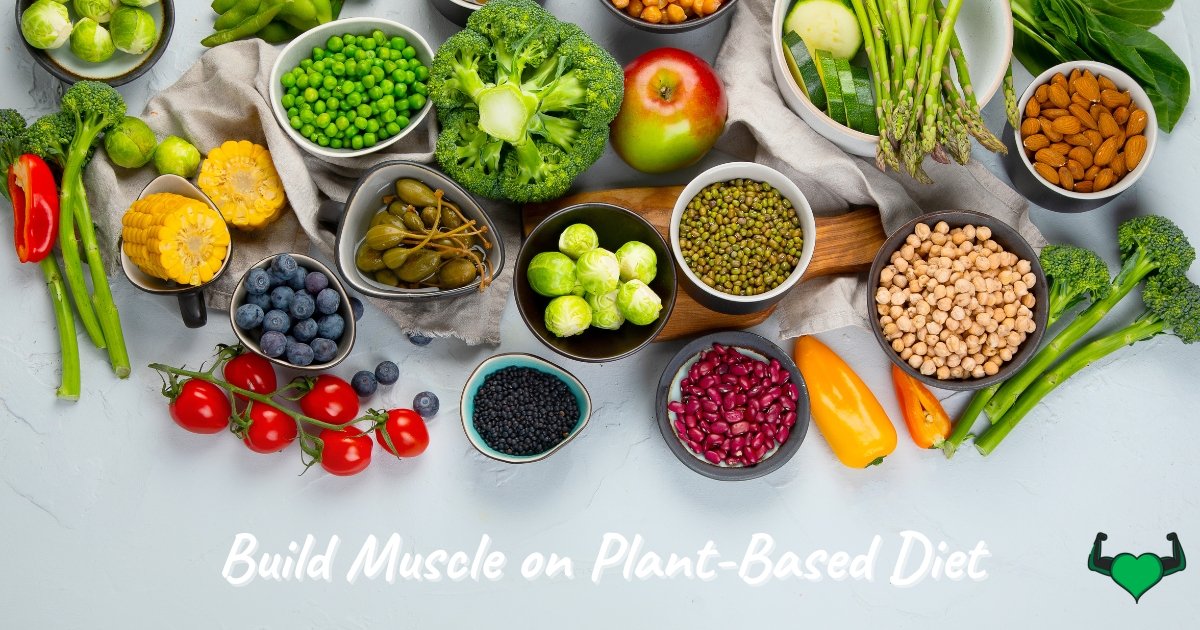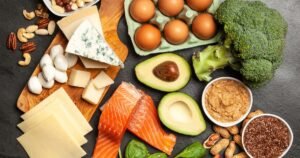Are you ready to prove that plants pack a powerful punch? Gone are the days when bodybuilders scoffed at the idea of building muscle on a plant-based diet. It’s 2024, and vegan gains are all the rage! Whether you’re a long-time herbivore or just dipping your toes into the plant-based pool, this guide will show you how to sculpt your dream physique without touching a single animal product. Get ready to flex those beans and show the world that real strength grows from the ground up!
Table of Contents
The Protein Myth: Debunking Plant-Based Misconceptions

- Why plant proteins are complete and sufficient for muscle growth
Plant proteins can be complete and sufficient for muscle growth due to:
Scientific Support: Studies show plant proteins can be as effective as animal proteins for muscle growth when protein intake is adequate.
Complete Sources: Foods like quinoa, buckwheat, hemp seeds, chia seeds, and soy products are complete proteins.
Protein Combining: Combining different plant foods (e.g., rice and beans) provides all essential amino acids.
Adequate Intake: Consuming a variety of plant-based protein sources (legumes, nuts, seeds, whole grains) ensures sufficient protein intake.
Bioavailability: Diverse diets and food preparation methods (soaking, sprouting) enhance protein digestibility.
Health Benefits: Plant diets offer essential nutrients (vitamins, minerals, antioxidants) that support muscle recovery and growth.
Looking at the above points it is obvious that one can build muscle on plant-based diet.
- Top plant-based protein sources for bodybuilders
For bodybuilders on a plant-based diet, the top protein sources are:
- Soy Products: Tofu, tempeh, edamame
- Legumes: Lentils, chickpeas, black beans
- Quinoa
- Seitan
- Hemp Seeds
- Chia Seeds
- Nutritional Yeast
- Spirulina
- Pumpkin Seeds
- Peas and Pea Protein
- Oats
- Nuts and Nut Butters
- Brown Rice and Brown Rice Protein
- Amaranth and Buckwheat
These sources provide essential amino acids and are effective for muscle building.
- Combining protein sources for optimal amino acid profiles
To achieve optimal amino acid profiles, combine these plant-based protein sources:
- Legumes + Grains: Lentils and rice, beans and quinoa
- Nuts/Seeds + Legumes: Chickpeas and sunflower seeds, hummus with tahini
- Grains + Vegetables: Quinoa with leafy greens, brown rice and broccoli
- Soy + Grains: Tofu with whole grain bread, tempeh and barley
These combinations ensure a complete amino acid profile that will help to build muscle on plant-based diet.
- Protein requirements for plant-based muscle building
For plant-based muscle building, aim for:
- Protein Intake: 1.6-2.2 grams of protein per kilogram of body weight per day.
- Distribution: Spread protein intake across 3-5 meals per day, each containing 20-40 grams of protein.
- Leucine: Ensure each meal includes about 2.5 grams of leucine for optimal muscle protein synthesis.
Consider protein-rich foods like tofu, tempeh, legumes, quinoa, and plant-based protein powders.
Essential Nutrients for Vegan Muscle Growth

- Key vitamins and minerals for muscle development
- Vitamin D: Supports muscle function and strength.
- Vitamin B12: Essential for red blood cell production and energy.
- Iron: Important for oxygen transport to muscles.
- Calcium: Necessary for muscle contraction.
- Magnesium: Supports muscle relaxation and recovery.
- Zinc: Crucial for protein synthesis and muscle repair.
- Omega-3 Fatty Acids: Reduce inflammation and support muscle recovery.
- Plant-based sources of B12, iron, and zinc
Vitamin B12:
- Fortified foods (plant-based milks, cereals)
- Nutritional yeast
- B12 supplements
Iron:
- Lentils
- Chickpeas
- Spinach
- Pumpkin seeds
- Fortified cereals
Zinc:
- Pumpkin seeds
- Chickpeas
- Lentils
- Tofu
- Quinoa
- The importance of omega-3s and how to get them from plants
Importance of Omega-3s:
- Reduce inflammation
- Support heart health
- Enhance muscle recovery
Plant-Based Sources:
- Flaxseeds
- Chia seeds
- Hemp seeds
- Walnuts
- Algal oil supplements
- Creatine supplementation for vegan athletes
Importance:
- Enhances muscle strength and performance
- Improves high-intensity exercise capacity
For Vegans:
- Use vegan-friendly creatine monohydrate supplements.
Meal Planning for Plant-Based Muscle Gains

- Calculating your caloric needs for bulking
- Calculate Basal Metabolic Rate (BMR): Use formulas like the Harris-Benedict equation based on age, gender, weight, and height.
- Determine Activity Level: Multiply BMR by an activity factor (1.2 to 2.0 depending on activity level).
- Add Surplus Calories: For bulking, add 250-500 calories per day to your maintenance calories.
Example:
- BMR Calculation (Mifflin-St Jeor):
- Men: BMR = 10 x weight(kg) + 6.25 x height(cm) – 5 x age(years) + 5
- Women: BMR = 10 x weight(kg) + 6.25 x height(cm) – 5 x age(years) – 161
- Adjust for Activity: BMR x Activity Factor (e.g., 1.55 for moderate exercise).
- Add Surplus: Maintenance Calories + 250-500 calories.
If you follow the above mentioned calculations you can easily build muscle on plant-based diet.
- Macronutrient ratios for optimal muscle growth
For optimal muscle growth:
- Protein: 25-30% of total calories
- Carbohydrates: 45-55% of total calories
- Fats: 20-30% of total calories
Adjust based on individual needs and goals.
- Sample meal plans for different calorie targets
2,500 Calorie Meal Plan
Breakfast:
- Oatmeal with almond milk, topped with berries and chia seeds
- Smoothie with spinach, banana, pea protein, and flaxseeds
Lunch:
- Quinoa salad with chickpeas, cherry tomatoes, cucumber, and avocado
- Apple
Snack:
- Hummus with carrot sticks
- Handful of almonds
Dinner:
- Tofu stir-fry with mixed vegetables and brown rice
- Side of steamed broccoli
Snack:
- Greek yogurt (dairy-free) with granola
3,000 Calorie Meal Plan
Breakfast:
- Whole grain toast with avocado and nutritional yeast
- Smoothie with kale, berries, hemp protein, and chia seeds
Lunch:
- Lentil soup with a whole grain roll
- Mixed green salad with walnuts and a vinaigrette
Snack:
- Trail mix (nuts, seeds, dried fruit)
- Banana
Dinner:
- Tempeh tacos with black beans, corn, salsa, and guacamole
- Side of quinoa
Snack:
- Peanut butter on whole grain crackers
- Dark chocolate square
3,500 Calorie Meal Plan
Breakfast:
- Tofu scramble with spinach, mushrooms, and bell peppers
- Smoothie with almond milk, banana, spinach, protein powder, and flaxseeds
Lunch:
- Chickpea and quinoa bowl with roasted vegetables and tahini dressing
- Orange
Snack:
- Almond butter on apple slices
- Energy bar
Dinner:
- Seitan stir-fry with mixed vegetables and soba noodles
- Side of steamed edamame
Snack:
- Vegan protein shake
- Handful of mixed nuts
Adjust portion sizes to fit individual needs and preferences.
As you can see, it is possible to have high-calorie intake even if you are vegan or vegetarian which means that you can build muscle on plant-based diet.
- Pre and post-workout nutrition on a vegan diet
Pre-Workout Nutrition
30-60 Minutes Before Workout:
- Carbs: Fruit (banana, apple) or a small oatmeal bowl
- Protein: Vegan protein shake or a handful of nuts
Post-Workout Nutrition
Within 30 Minutes After Workout:
- Carbs: Smoothie with fruits (berries, banana)
- Protein: Pea or hemp protein powder added to the smoothie
1-2 Hours After Workout:
- Balanced meal with:
- Carbs: Quinoa, brown rice
- Protein: Tofu, tempeh, lentils
- Fats: Avocado, nuts
This ensures optimal muscle recovery and energy replenishment.
Vegan-Friendly Supplements for Muscle Building

- Plant-based protein powders: pea, rice, hemp, and more
Pea Protein:
- High in BCAAs
- Easily digestible
- Mild taste
Rice Protein:
- Hypoallergenic
- Complements pea protein for a complete amino acid profile
Hemp Protein:
- Contains omega-3 fatty acids
- High in fiber
Soy Protein:
- Complete protein
- Rich in essential amino acids
Pumpkin Seed Protein:
- High in magnesium and zinc
- Good amino acid profile
Blended Protein Powders:
- Combine multiple plant sources (e.g., pea, rice, hemp) for a balanced amino acid profile
Choose based on dietary needs, taste preference, and any potential allergies.
- BCAAs and their role in muscle recovery
BCAAs (Branched-Chain Amino Acids):
- Leucine, Isoleucine, Valine: Key amino acids
- Role:
- Stimulate muscle protein synthesis
- Reduce muscle soreness
- Decrease exercise-induced muscle damage
- Enhance muscle recovery
Sources:
- Plant-based protein powders (e.g., pea, soy)
- BCAA supplements
BCAAs are crucial for improving recovery and supporting muscle growth and help build muscle on plant-based diet.
- Vegan-friendly pre-workout supplements
- Caffeine: Enhances focus and energy.
- Beta-Alanine: Reduces muscle fatigue.
- Citrulline Malate: Boosts blood flow and endurance.
- Creatine Monohydrate: Increases strength and power.
- Beetroot Powder: Improves nitric oxide levels and endurance.
- BCAAs: Support muscle energy and reduce fatigue.
Ensure supplements are labeled vegan-friendly.
- Natural testosterone boosters from plant sources
- Fenugreek: May increase testosterone levels and libido.
- Ashwagandha: Supports stress reduction and testosterone production.
- Tribulus Terrestris: Traditionally used to enhance testosterone and libido.
- Maca Root: Known for improving libido and stamina.
- Ginger: Can boost testosterone and improve sperm health.
Incorporate these into your diet through supplements or natural forms to make sure you can build muscle on plant-based diet.
Workout Strategies for Plant-Powered Athletes

- Progressive overload techniques for muscle hypertrophy
- Increase Weight: Gradually lift heavier weights.
- Increase Repetitions: Do more reps with the same weight.
- Increase Sets: Add more sets to your routine.
- Decrease Rest Time: Shorten rest periods between sets.
- Improve Form: Enhance exercise technique and control.
- Vary Exercises: Incorporate different exercises for the same muscle group.
- Slow Down: Increase time under tension by slowing down the movement.
Regularly implement these techniques to continually challenge your muscles and promote growth.
- Balancing strength training and cardio on a plant-based diet
- Prioritize Protein: Ensure adequate protein intake to support muscle repair and growth.
- Schedule Workouts: Alternate strength and cardio days or do cardio after strength training.
- Nutrient Timing: Eat protein and carbs before and after workouts to fuel performance and recovery.
- Stay Hydrated: Drink plenty of water to support overall health and performance.
- Monitor Recovery: Ensure proper rest and listen to your body to prevent overtraining.
- Diversify Cardio: Use low-impact options like cycling or swimming to minimize muscle fatigue.
Maintain a balanced diet rich in whole foods, and adjust based on your training intensity and goals.
- Recovery strategies for vegan bodybuilders
- Protein Intake: Ensure adequate protein with sources like tofu, tempeh, lentils, and protein powders.
- Hydration: Drink plenty of water to aid muscle recovery and overall health.
- Sleep: Aim for 7-9 hours of quality sleep each night.
- Anti-Inflammatory Foods: Include foods like turmeric, ginger, berries, and leafy greens.
- Stretching and Foam Rolling: Incorporate post-workout stretching and foam rolling to reduce muscle soreness.
- Omega-3s: Consume flaxseeds, chia seeds, and walnuts to reduce inflammation.
- Rest Days: Allow sufficient rest days to let muscles recover and grow.
Implement these strategies consistently to support optimal recovery and build muscle on plant-based diet.
- Adapting workout intensity to match plant-based nutrition
- Monitor Energy Levels: Adjust workout intensity based on how well you’re fueled.
- Prioritize Recovery: Ensure adequate protein and calories to support muscle repair and energy.
- Include Carbs: Fuel intense workouts with sufficient carbohydrates from fruits, grains, and legumes.
- Balance Macronutrients: Maintain a balanced intake of protein, fats, and carbs for sustained energy.
- Listen to Your Body: Scale intensity if you feel fatigued or under-recovered.
Adapt workout intensity based on how effectively your plant-based diet supports your training demands.
Conclusion
There you have it, plant-powered warriors! Building muscle on a plant-based diet isn’t just possible – it’s downright awesome. By focusing on nutrient-dense foods, smart supplementation, and killer workouts, you can achieve the physique of your dreams without compromising your values. Remember, every rep, every meal, and every green smoothie is bringing you closer to your goals. So flex those lentils, pump that tofu, and show the world that plant-based muscle is the future of fitness. Now go out there and grow some green gains!





Pingback: 10 Essential Nutrients for Vegan Athletes in 2024 - VitalityFitHub